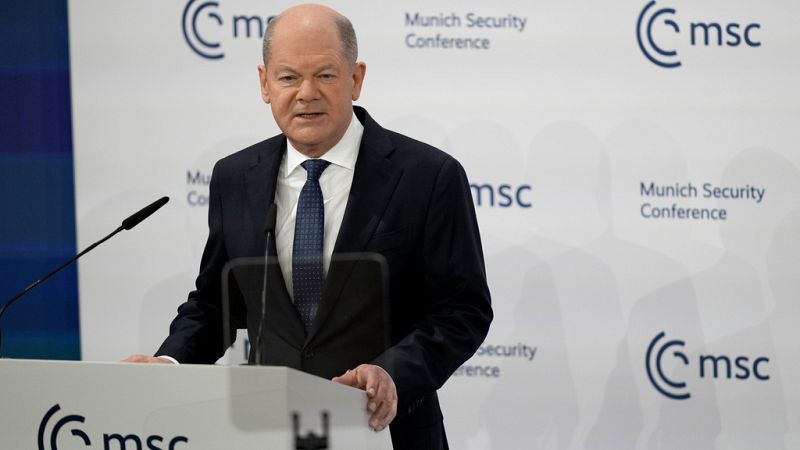
In a Saturday morning speech, German Chancellor Olaf Scholz defended his position against the far-right and stated that Germany will not accept individuals who "interfere in our democracy", a day after US Vice President JD Vance met with the AfD leader and criticized European leaders.
Speaking at the Munich Security Conference on Friday, Vance criticized the approach European governments have to democracy and expressed concern that free speech across the continent is "in retreat".
He stated that many Americans perceived entrenched interests concealed behind "Soviet-era" terms such as misinformation and disinformation, who simply object to the notion that someone with an opposing viewpoint might express a different opinion or, heaven forbid, cast a vote for a different candidate or, worse still, win an election.
Vance stated that he was not as preoccupied with Russia or China in terms of European security as he was with a "threat from within" - a retreat of Europe from some of its core values, shared values with the United States of America.
On the sidelines of the event, Vance met with Alice Weidel, co-leader of the far-right and anti-immigrant Alternative for Germany (AfD) party, nine days before the German general election.
In a long-standing position to exclude the extreme right in a country still reeling from the legacy of Nazism, mainstream German parties maintain that they will not cooperate with the AfD.
Scholz reiterated that "never again" is a historical obligation that Germany must and intends to uphold - never again fascism, racism, or aggressive war. He strongly condemned the AfD, pointing out that some of its members had described Nazi atrocities as simply "a blot on history". He emphasized that the principle of "never again" is incompatible with supporting or cooperating with the AfD.
Scholz further responded to Vance's comments by saying "Germany is a very strong democracy, and as a strong democracy, we are absolutely clear that the extreme right should be out of political control and out of political decision-making processes, and that there will be no cooperation with them."
"We absolutely reject any notion of cooperation between various factions, other parties, and these far-right parties.”
He referred to laws in Germany that regulate hate speech, stating that "free speech in Europe means that you are not targeting others in a manner prohibited by our country's legislation and laws."
The exchange between Scholz and Vance occurred as European leaders were attempting to comprehend a new, more stringent stance from Washington on issues such as democracy and Ukraine's future, amidst the ongoing disruption of established trans-Atlantic norms that have been in place since the aftermath of World War II.
Providing ongoing support to Ukraine for as long as required.
On Ukraine, Scholz reiterated a shared objective: maintaining Ukraine's sovereignty. He emphasized that any decisions regarding Ukraine should be made with Ukraine's participation, and defended ongoing negotiations that now involve both Ukraine and Russia.
He emphasized that Germany's commitment to supporting Ukraine "for as long as necessary" does not end just because the fighting stops. Scholz also made it clear that Ukraine must be supported in a way that prevents future aggression and that Ukraine cannot stand on its own, requiring continued backing from both the EU and the US, with the US and Germany being its largest supporters.
US President Donald Trump held a telephone conversation with Russian President Vladimir Putin this week, during which he stated that the two leaders are likely to meet soon to negotiate a peace agreement regarding Ukraine. Trump subsequently assured Ukrainian President Volodymyr Zelenskyy that he would also have a place at the negotiating table.
On Friday, the Ukrainian leader stated that his country requires security guarantees before engaging in any talks with Russia. Just before meeting with Vance in Munich, Zelenskyy said he will only agree to a face-to-face meeting with Putin after a joint plan has been negotiated with Trump.
